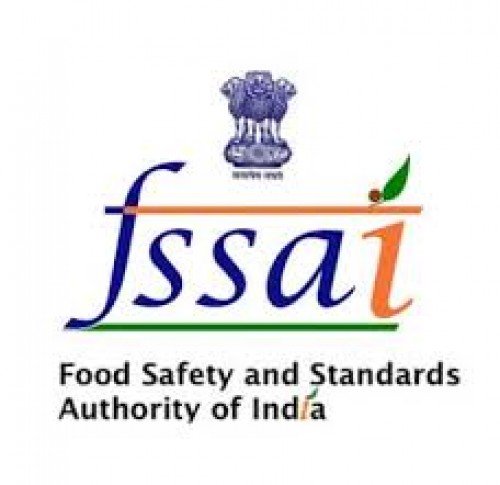UTTAR PRADESH
- UP govt revises excise norms
- The state government eased the existing excise policy and revised it in a way to put an end to monopoly of some business players in the trade. It has also taken some measures to put a check on illegal liquor supply to ensure credibility of branded liquor.
- This bar code system will put a check on illegal liquor supply as the department will be able to track liquor from manufacturing point to the sale point in the state from now. The supply will be under camera activity and CCTVs will be installed at manufacturing units. Besides, trucks carrying liquor bottles will be laced with GPS tracking system.
INTERNATIONAL
- Delhi’s IGI in world’s top 20 busiest airports
- Robust air traffic growth at the capital’s Indira Gandhi International (IGI) Airport has propelled it into the list of top 20 airports in terms of passenger traffic in 2017.
- According to the Airports Council International (ACI), Kolkata, Hyderabad, Bangalore and Chennai were among the fastest growing airports in the world last year.
- Cabinet approves Headquarters Agreement between India and the ISA
- The Union Cabinet chaired by Prime Minister Shri Narendra Modi has given its ex-post facto approval for entering into Headquarters (Host country) Agreement between India and the International Solar Alliance (ISA) and authorizing the Ministry of External Affairs for signing the Headquarter Agreement.
- The Agreement was signed on 26th March, 2018.
- The Headquarters Agreement will institutionalize the functional arrangements between India and ISA.
- It will help in smooth transition of ISA as international inter-governmental organization.
- Creation of ISA will lead to accelerated solar technology development and deployment in ISA member countries including India.
NATIONAL
- World’s largest solar park to come up in Gujarat
- Gujarat Chief Minister Vijay Rupani has approved setting up a 5,000 MW capacity solar park at the Dholera Special Investment Region (SIR), which would be the largest such entity in the world after its completion.
- The proposed solar power generation project would be set up in 11,000 hectares of land with an investment of Rs 25,000 crore.
- The project will contribute significantly in achieving Prime Minister Narendra Modi’s target of producing 175 gigawatt of electricity through renewable energy sources by 2022.
- FSSAI launches initiative to address Vitamin D deficiency
- The Food Safety and Standards Authority of India (FSSAI) has launched ‘Project Dhoop’, an initiative aimed at shifting the school assembly time to noon to ensure maximum absorption of Vitamin D in students through natural sunlight.

- The project was launched at National Bal Bhavan here, and saw participation of around 600 students from NCERT, NDMC and North MCD Schools.
- The initiative has been conceptualised by McCannHealth and supported by Kwality (Ltd).
- ISRO puts navigation satellite INRSS-1I into orbit
- The Indian Space Research Organisation’s navigation satellite INRSS-1I was launched by PSLV-C41 and successfully placed in the designated orbit.
- PSLV-C41/IRNSS-1I Mission blasted off at 4.04 am from the first launchpad at the Sathish Dhawan Space Centre.
- Drinking water projects ‘by & for the people’ soon in 6 states
- The central government will launch six pilot projects for clean drinking water supply in villages under ‘Swajal Project; one each in Uttarakhand, UP, Rajasthan, Maharashtra, Bihar and Madhya Pradesh. The project will involve locals in civil work and maintenance of the system.
- Piloted as a “by the people, for the people, of the people” project, the drinking water and sanitation ministry will pay 90% of the cost and the panchayat concerned will bear the remaining 10%. It will be extended to all 115 backward districts identified by Niti Aayog. The first two pilots will start in Uttarakhand (this month) and in Rajasthan next month.
- The project will also seek to improve ground water level by rainwater harvesting and other water recharging initiatives.
- Soon, states can choose from two MSP models
- The Central government has finalised two mechanisms to ensure farmers get federally-fixed minimum support prices (MSP) for their crops, a key assurance made in the Union Budget 2018-19. States would be free to choose from either of the models, said a government official familiar with the matter.
- The first, is the Market Assurance Scheme, under which, states will undertake direct procurement (buying of farm produce) of20 out of 25 major crops for which the MSPS are fixed by the Centre. The scheme leaves out wheat, rice, jute, cotton and coconut because these are already procured by government agencies at MSP prices.
- The second scheme, is the price deficiency payment scheme under which, all farmers who register for the programme will get paid the difference between the MSP and the ruling average market price. A third proposal to allow private participation in procurement is not being considered at this stage.
- The second scheme is a generic version of the Madhya Pradesh government’s Bhavantar scheme. Under this, if the market price of a farm commodity dips below the “modal” price — a kind of an average price — then farmers will be paid the difference between MSP and the actual price. However, if any state chooses the second scheme, the Centre will reimburse it up to only 25% of the MSP. For example, if the MSP of a crop is ₹100 a kg, but its average market price is ₹75, then the Centre will pay the difference of ₹25 to be paid to the farmer. Beyond 25%, states have to fund the payout on their own.
UPPCS Notes brings Prelims and Mains programs for UPPCS Prelims and UPPCS Mains Exam preparation. Various Programs initiated by UPPCS Notes are as follows:-
- UPPCS Mains Tests and Notes Program 2025
- UPPCS Prelims Exam 2025- Test Series and Notes Program
- UPPCS Prelims and Mains Tests Series and Notes Program 2025
- UPPCS Detailed Complete Prelims Notes 2025